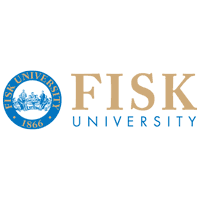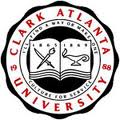Here is this week’s news of grants or gifts to historically Black colleges and universities or for programs of particular interest to African Americans in higher education.
 The United Negro College Fund has partnered with Cengage, the largest U.S.-based provider of teaching and learning materials for higher education, to establish a program that will provide 1,000 students from HBCUs with free, semester-long subscriptions to Cengage Unlimited. This subscription offers access to more than 22,000 Cengage eBooks, online homework access codes, and study guides, as well as free access to Evernote, Kaplan, Quizlet, Chegg, and Dashline. This partnership aims to support minority students by relieving the cost of textbooks.
The United Negro College Fund has partnered with Cengage, the largest U.S.-based provider of teaching and learning materials for higher education, to establish a program that will provide 1,000 students from HBCUs with free, semester-long subscriptions to Cengage Unlimited. This subscription offers access to more than 22,000 Cengage eBooks, online homework access codes, and study guides, as well as free access to Evernote, Kaplan, Quizlet, Chegg, and Dashline. This partnership aims to support minority students by relieving the cost of textbooks.
 Historically Black Fisk University in Nashville, Tennessee, has received a $1 million grant from HCA Healthcare to create the HCA Healthcare Scholars at Fisk University program. The program will create scholarships and internship opportunities for high-achieving Fisk students. Additionally, HCA Healthcare will provide guest lectures to inform and prepare students who are interested in pursuing a career in healthcare. Among the program’s first cohort, which launched this summer, are students studying a diverse range of disciplines including business, computer science, biology, and psychology.
Historically Black Fisk University in Nashville, Tennessee, has received a $1 million grant from HCA Healthcare to create the HCA Healthcare Scholars at Fisk University program. The program will create scholarships and internship opportunities for high-achieving Fisk students. Additionally, HCA Healthcare will provide guest lectures to inform and prepare students who are interested in pursuing a career in healthcare. Among the program’s first cohort, which launched this summer, are students studying a diverse range of disciplines including business, computer science, biology, and psychology.
 The Center for Cancer Research and Therapeutic Development at historically Black Clark Atlanta University has received a $10.6 million grant from the National Institute on Minority Health and Health Disparities of the National Institutes of Health. This renewal grant will enable the center to expand and enhance its current research and educational activities. Additionally, the new funds will allow the center to restructure and update its core facilities and infrastructure.
The Center for Cancer Research and Therapeutic Development at historically Black Clark Atlanta University has received a $10.6 million grant from the National Institute on Minority Health and Health Disparities of the National Institutes of Health. This renewal grant will enable the center to expand and enhance its current research and educational activities. Additionally, the new funds will allow the center to restructure and update its core facilities and infrastructure.
 The University of the District of Columbia has received a $3 million grant from NASA to establish a Center for Advanced Manufacturing in Space Technology & Applied Research. The new center at the historically Black university will focus on research investigating various advanced manufacturing techniques and their application in space exploration technology. Additionally, the center will provide research opportunities and scholarships for undergraduate and graduate students, as well as a Space STEM Outreach Program for middle and high school students, teachers, community colleges, and minority-serving colleges.
The University of the District of Columbia has received a $3 million grant from NASA to establish a Center for Advanced Manufacturing in Space Technology & Applied Research. The new center at the historically Black university will focus on research investigating various advanced manufacturing techniques and their application in space exploration technology. Additionally, the center will provide research opportunities and scholarships for undergraduate and graduate students, as well as a Space STEM Outreach Program for middle and high school students, teachers, community colleges, and minority-serving colleges.
 The School of Health Sciences at Winston-Salem State University, the historically Black educational institution in North Carolina, has received a $147,000 federal grant from the Administration for Community Living/U.S. Department of Health and Human Services to create an educational and training program that aims to reduce the risk of falling and safeguard the independence of older adults. Over the next three years, the school plans to reach 400 older adults and adults with disabilities and partner with community agencies in seven Piedmont counties to launch the evidence-based program.
The School of Health Sciences at Winston-Salem State University, the historically Black educational institution in North Carolina, has received a $147,000 federal grant from the Administration for Community Living/U.S. Department of Health and Human Services to create an educational and training program that aims to reduce the risk of falling and safeguard the independence of older adults. Over the next three years, the school plans to reach 400 older adults and adults with disabilities and partner with community agencies in seven Piedmont counties to launch the evidence-based program.











